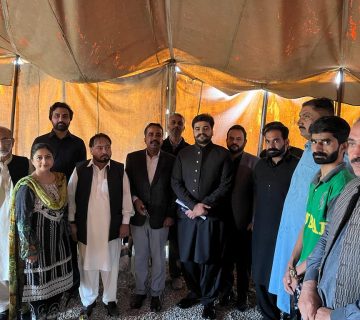UNITED NATIONS, Apr 12 (APP):Pakistan has called for transforming education to cater to the needs of the young and growing population, especially in the developing countries, in an effort to achieve quality education for all by 2030.
“Along with the triple economic crisis of finance, fuel and food, the developing countries are also facing a triple crisis in education – of equity, quality and relevance,” Ambassador Munir Akram told the 56th session of the Commission on Population and Development which is taking place against the backdrop of a global learning crisis.
In this regard, the Pakistani envoy underscored the need for addressing — on an urgent basis — the factors leading to the denial of the right to education of children and youth, such as conflict, poverty, malnutrition, access to the internet and gender digital divide.
Also, Ambassador Akram said that millions of children and youth living in situations of conflict and foreign occupation must not be forgotten and deprived of their fundamental right to education and development, as also those with disabilities, migrants and other vulnerable groups.
“The UN’s Sustainable Development Goals cannot be achieved, at the national and international level, without transforming education to cater to the needs of the young and growing population, especially in the developing countries,” he added.
To achieve those goals, the Pakistani envoy urged the world’s nations, singly and collectively, to ensure universal access to quality education at all levels.
Investments in education was also needed to create awareness of environment and sustainable development and the demographic trends that impinge on the scarce resources, he said.
Lifelong learning should be made available across the age range, especially in developing countries, enhancing their employment prospects by teaching transferable skills, Ambassador Akram said.
The international community, he said, should provide technical and financial assistance for population data collection to developing countries, as financing was critical in bridging the digital and resource divide to deal with the education emergency.
“The most important investment in creating a peaceful and inclusive world’s education – where every child, without discrimination, has equitable access to basic and quality education,” Ambassador Akram said, adding, “This must be a key priority for all our nations, acting individually and collectively.”
Highlighting the transformative potential of education for individuals and their societies, Natalia Kanem, Executive Director of the United Nations Population Fund (UNFPA), asked delegates to “imagine a girl standing at a fork in the road.”
If she is able to stay in school, she’s well set on a path of lifelong health and well-being, but if she is forced to drop out of school, to marry as a child or if she becomes pregnant while still a child herself, she will face a cascade of challenges that jeopardize not only her health and well-being but also her society’s prospects for prosperity.
“UNFPA knows this girl,” she added, underscoring that better-educated women are healthier, marry later and are more likely to plan the number and spacing of children.
Education also reduces the likelihood of harmful practices like child marriage and female genital mutilation and lowers risk of gender-based violence.
Amina Mohammed, Deputy Secretary-General of the United Nations, drawing attention to the plight of Afghan women and girls, called on the de facto authorities in Afghanistan to reverse the bans on education and employment.
Noting that progress towards Sustainable Development Goal 4 (quality education) is “seriously off track”, Ms.Mohammed voiced concern about the 263 million children and youth out of school.
Moreover, many of those in school are not learning, she observed, adding that nearly 70 per cent of children in poorer countries are unable to understand a basic text by age 10, many due to the effects of poverty and malnutrition.




No comment